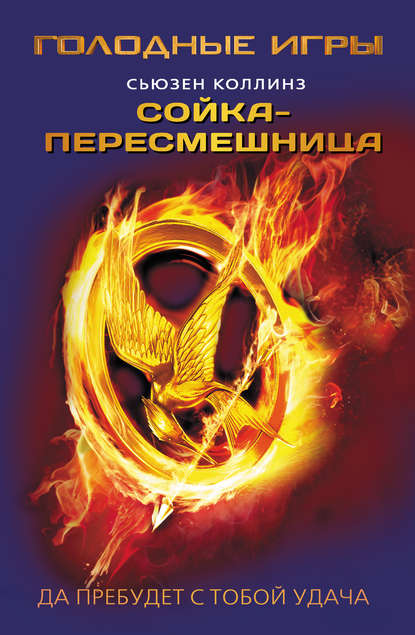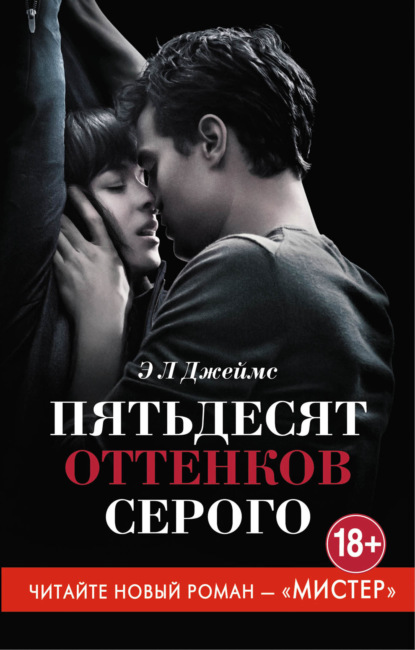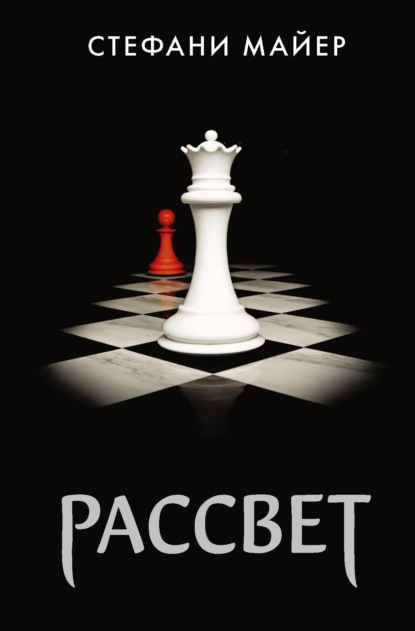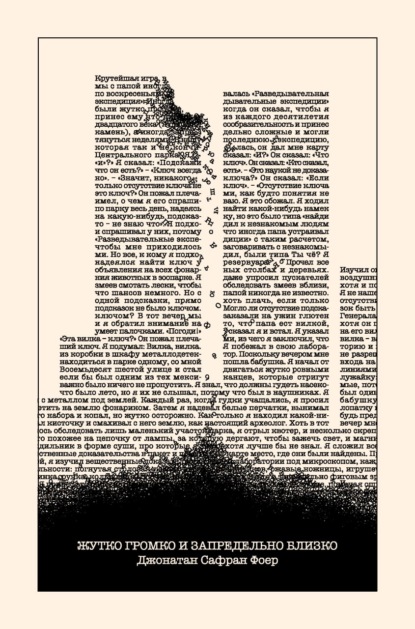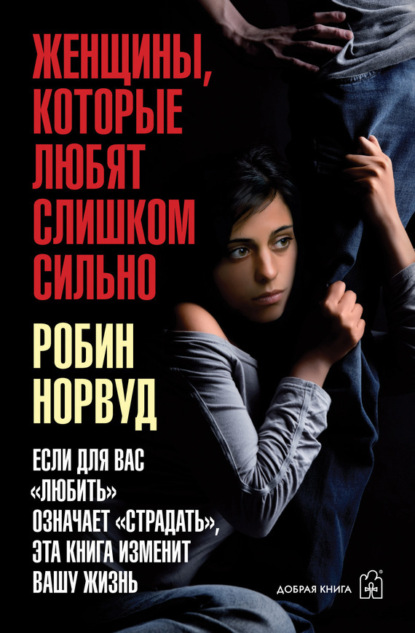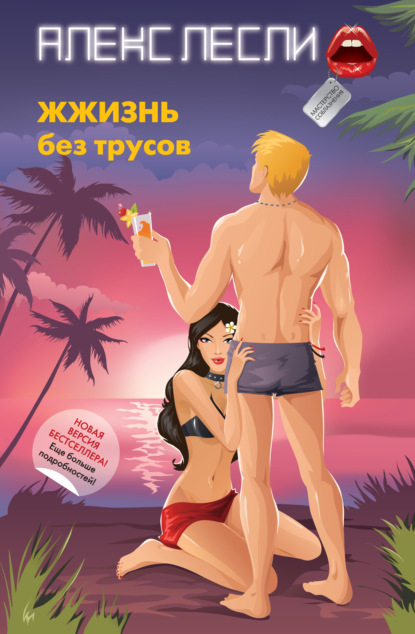
Текст
отзывы: 0 | рейтинг: 0
Полная версия
Полная версия
Havana Best Friends
Jose Latour
A moody slice of Cuban noir from the acclaimed author of Outcast: ‘A masterful book … passionate, frightening and extremely violent’ Independent on SundayYears ago, a fleeing Batista supporter reportedly stashed an incredibly valuable collection of diamonds in a Havanan apartment. Now a pair of Americans (posing as Canadians) have come to Cuba to find the jewels on behalf of the man’s blind son, who promised them a share of the fortune if they can make it back to New York.Arriving at the apartment, they have to negotiate its present occupants – a mismatched brother and sister: he a Cuban wide boy scraping a living out of selling girls, pornography and drugs to foreigners; she an upright, vulnerable, beautiful woman with a tragic past. (Their father, the hero of the Cuban revolution, is in gaol after shooting his wife’s lover.) Add to this is a hitman the Americans unwisely hired to get rid of one of the obstacles in their path, who now wants a piece of the action himself, and the pressure is on to find the diamonds and get out of Havana – before someone else gets their hands on them.
Havana Best Friends
José Latour
I dedicate this novel to all special needs teachers, whose enthusiasm and self-sacrifice should be a guiding light for the rest of mankind.
Epigraph (#ulink_a5cadfea-3ea1-52af-8654-996aaf8f3849)
There are two ways of spreading light: to be the candle or the mirror that reflects it
EDITH WHARTON
Table of Contents
Cover Page (#u8c38969c-7b40-52b0-8760-9ce6fc6baeda)
Title Page (#ua40ac18b-83b6-57f0-b765-07e1abca5fc0)
Epigraph (#ue139d8c9-e769-5365-a261-312884064270)
Part One (#u4812e748-f706-59d6-ab51-f67c49031eca)
1 (#u9ed239a7-b593-5fcb-bd57-f7011be68cc9)
2 (#u3610531a-ecbb-5554-99f5-b5009ef93b58)
3 (#litres_trial_promo)
Part Two (#litres_trial_promo)
4 (#litres_trial_promo)
5 (#litres_trial_promo)
6 (#litres_trial_promo)
7 (#litres_trial_promo)
Part Three (#litres_trial_promo)
8 (#litres_trial_promo)
EPILOGUE (#litres_trial_promo)
ACKNOWLEDGEMENTS (#litres_trial_promo)
About the Author (#litres_trial_promo)
By the same author (#litres_trial_promo)
Copyright (#litres_trial_promo)
About the Publisher (#litres_trial_promo)
Part One (#ulink_4c01ecd0-0f1b-5cba-b4cf-cf353d5c4ffa)
1 (#ulink_6817c950-b0c3-5a1b-a67c-8044ae807e42)
One of the most remarkable sights of the Parque de la Quinta, in Havana’s posh Miramar suburb, are the full-grown, sixty-foot ficus trees. Their numerous hanging vines reach the public park’s red clay, dig into it, grow roots, and form supplementary trunks around the main one. Nature-loving tourists coasting by along Fifth Avenue in their rentals frequently slow down to gape at them, risk a traffic ticket by parking alongside the kerb, then get out to photograph or videotape themselves next to the vegetal giants.
When that happens, the police officer standing under a metallic sunshade by the gleaming white residence of the Belgian ambassador to Cuba, a restored mansion on the corner of Fifth and 24th Street, usually says into the transceiver mounted on his left shoulder something like, ‘41 to 04. A 314 on Fifth between 24th and 26th. Plate T-00357,’ then waits to see whether a squad car will slap a fine on the violator. But on the morning of Friday, 26 May 2000, the young cop on duty had been ogling the woman jogging around the park and didn’t report the black Hyundai that had illegally pulled over on Fifth and discharged a tall overweight man.
The jogger’s blonde hair was pulled back into a ponytail that reached below her shoulders and swayed gracefully. A light-green sweatshirt covered a skimpy bra in which were nestled small breasts; black Lycra leggings hugged ample round hips and well-proportioned thighs; cotton socks and sneakers completed her apparel. The cop wasn’t paying attention to her long eyebrows, honey-coloured eyes, straight nose, or thin lips; he was focusing on her behind – not as hefty as he preferred. ‘Nice temba,’ he said, using the Cuban slang for an attractive woman in her late thirties or early forties.
Her rangy escort, a few yards behind, had the appearance of a middle-aged scholar who had decided to exercise on a regular basis only after intellectualizing the benefits involved. This impression was enhanced by innocent-looking blue eyes and a clean-shaven face. Six or seven inches taller than her five feet four, he had copper-coloured short hair partially hidden by a white cotton braided bandanna. A purple sweatshirt covered his flat chest and belly; under his blue baggy shorts, hairy legs showed. His feet, shod with Reeboks and lacking socks, revealed bony ankles.
The joggers turned on the corner of 24th and continued their fourth lap on the sidewalk along Fifth. Perspiration glistened on their faces, darkened the cloth under their armpits. Their skin, where visible, was quite rosy.
And this distinctive colour made the cop assume the joggers were 611s, the code for aliens. In Havana, among white people, at a glance and from a distance, what frequently sets locals apart from foreigners is a suntan. Particularly in Miramar, where embassies and the offices of multinationals are often flanked by private dwellings, the margin for error is wide when trying to surmise who isn’t a native.
Clothing is not an infallible clue. Despite the fact that most Cubans dress modestly, the number of those in fashionable sportswear and flashy running shoes – the attire favoured by many tourists – grows steadfastly as remittances from Cubans living abroad increase year after year. Redness or rosiness, as opposed to a natural, everyday tan, is therefore a more reliable indication.
Few of the sun’s rays filtered through the park’s dense foliage canopy and reached the soil where spots of lawn survived precariously alongside fine gravel. Dead leaves were being raked by a gardener. The scent of dew and plants was overpowered by the exhaust fumes from the steady stream of vehicles speeding along. Sparrows and grackles pecking close to the sinuous walkways returned to the safety of branches and twigs when pedestrians got too close. A thirty-foot pergola was being swept clean by an old woman who resembled Warty the witch, minus cat and hat.
The couple went past a bust of General Prado, the nineteenth-century Peruvian president who favoured the independence of Cuba, and rounded the sidewalk at the corner of 26th. They had grown familiar with the neighbourhood after exercising at this same place for three consecutive days from 7.45 to 8.15 a.m., give or take a couple of minutes. Across the street, the Catholic church of Santa Rita de Casia already had its doors open to parishioners and visitors alike.
The joggers rounded the corner of 26th on to Third A, a curved street. The tall overweight man who was contemplating a monument to Mahatma Ghandi behind the pergola, and three young men shooting the breeze on Third A and 26th, eyed the couple curiously when the man slowed down, stopped, bent over and grabbed both knees. With a puzzled frown, the woman glanced over her shoulder, reduced her speed, and came to a halt. He hunkered down. She retraced several steps, solicitously rested her left hand on his back, then addressed him with a look of concern.
The man nodded before straightening up. Both were trying to get their breathing back to normal. She said something, looking at a three-storey apartment building across the street. He shook his head, but then grabbed her shoulder, as if for balance. She steered him towards the apartment building, eyebrows knitted in a frown.
The concrete-and-block cube numbered 2406 was a six-unit – three facing the street, three at the back – built in the 1950s. Painted light grey, about sixty yards long, twenty yards wide, fifteen yards high, it was flanked by a lot where the foundations for a new building were being dug, and by a private house with a red-tile roof. It seemed somewhat out of place in a neighbourhood where older architectural styles prevailed. Three balconies with French windows, one on each floor, faced the street.
The couple followed a cemented footpath alongside a driveway to a small covered foyer and went in. They faced a main door with a number one in brass nailed to it; a marble stairway to the upper floors stood to their right. She pressed the buzzer alongside the door. Nearly a minute went by before it was opened by a tall, good-looking woman wearing a white short-sleeved blouse, a dark-green, knee-length skirt, and high heels.
‘Yes?’ the surprised resident asked in Spanish, her left eyebrow arched.
‘I’m so sorry to inconvenience you,’ the female jogger said in the same language. ‘My name’s Marina. This is my husband, Sean. We were jogging in the park and…his vision blurred, he felt dizzy. From the heat, you know. Canadians are not accustomed to this temperature. Could you offer him a glass of water, please? We forgot to bring some with us.’
For an instant the woman stared at the man. He seemed exhausted, an embarrassed flicker of a smile on his lips. ‘Sure, come on in,’ she said, stepping back and pulling the door wide open.
Marina and Sean entered a spacious living room in a deplorable condition. A Chesterfield with overstuffed arms and two matching club chairs, all three pieces upholstered in what, fifty years earlier, had been an excellent brocade, were now badly frayed with dark stains of human grease and dirt on their arms and backs. At some point the nice cedar coffee table had lost its glass top and now showed multiple rings from glasses; on it stood an ashtray full of reeking butts. The folds of cloth which framed the French window to the balcony, like the shades of two floor lamps, were also soiled. A solitary light bulb hung from the ceiling and the cream-coloured vinyl paint on the walls was beginning to flake off.
‘Take a seat, please,’ the hostess said. ‘I’ll bring the water.’
She disappeared into a hallway, her heels clicking on the granite floor. Realizing that a few extra drops of sweat wouldn’t worsen the Chesterfield’s present condition very much, the joggers eased themselves down on to its edge and took in a beautiful still-life in a baroque frame hanging to their left, two mismatched chairs, a TV set facing them. From somewhere inside a man bellowed: ‘Who the fuck was it, Elena?’ The couple swapped a curious glance. A refrigerator door slamming shut was the only response.
The woman returned to the living room with two glasses of cold water on a tray which she placed on the coffee table.
‘There you are. Let me know if you want some more.’
The man reached for a glass and drank avidly, his Adam’s apple bobbing with every gulp. Having returned the glass to the tray, he leaned back on the sofa, and closed his eyes.
‘The family doctor is two blocks away. I can fetch him, if you want,’ the hostess suggested, a dash of solicitude in her tone, as she slid into a club chair.
‘Let’s give him a minute,’ Marina said, still frowning at her companion. ‘Nothing like this has ever happened to him. It may just be sunstroke.’
‘I asked who the f—’ a short bald man bellowed from the entrance to the hallway. He was barefoot, wearing only his boxer shorts, and part of his pubic hair could be seen through the opening at the front. With a surprised expression he checked himself, turned and fled to put on something more. Long hair at the back of his head flopped ludicrously.
Repressing a snicker, Marina took a sip from her glass, then drained it. Sean had opened his eyes at the man’s voice. ‘Thanks, ma’am,’ he whispered in English before sliding forward on the seat and extending his right hand. ‘Sean,’ he added, apparently recovered.
‘Elena,’ the hostess said with a firm handshake. She stood up to reach Marina and shook hands with her too.
‘Feeling better?’ Elena asked of the man as she returned to her seat.
Marina interpreted for her husband. ‘He doesn’t speak Spanish,’ she explained.
Jose Latour
A moody slice of Cuban noir from the acclaimed author of Outcast: ‘A masterful book … passionate, frightening and extremely violent’ Independent on SundayYears ago, a fleeing Batista supporter reportedly stashed an incredibly valuable collection of diamonds in a Havanan apartment. Now a pair of Americans (posing as Canadians) have come to Cuba to find the jewels on behalf of the man’s blind son, who promised them a share of the fortune if they can make it back to New York.Arriving at the apartment, they have to negotiate its present occupants – a mismatched brother and sister: he a Cuban wide boy scraping a living out of selling girls, pornography and drugs to foreigners; she an upright, vulnerable, beautiful woman with a tragic past. (Their father, the hero of the Cuban revolution, is in gaol after shooting his wife’s lover.) Add to this is a hitman the Americans unwisely hired to get rid of one of the obstacles in their path, who now wants a piece of the action himself, and the pressure is on to find the diamonds and get out of Havana – before someone else gets their hands on them.
Havana Best Friends
José Latour
I dedicate this novel to all special needs teachers, whose enthusiasm and self-sacrifice should be a guiding light for the rest of mankind.
Epigraph (#ulink_a5cadfea-3ea1-52af-8654-996aaf8f3849)
There are two ways of spreading light: to be the candle or the mirror that reflects it
EDITH WHARTON
Table of Contents
Cover Page (#u8c38969c-7b40-52b0-8760-9ce6fc6baeda)
Title Page (#ua40ac18b-83b6-57f0-b765-07e1abca5fc0)
Epigraph (#ue139d8c9-e769-5365-a261-312884064270)
Part One (#u4812e748-f706-59d6-ab51-f67c49031eca)
1 (#u9ed239a7-b593-5fcb-bd57-f7011be68cc9)
2 (#u3610531a-ecbb-5554-99f5-b5009ef93b58)
3 (#litres_trial_promo)
Part Two (#litres_trial_promo)
4 (#litres_trial_promo)
5 (#litres_trial_promo)
6 (#litres_trial_promo)
7 (#litres_trial_promo)
Part Three (#litres_trial_promo)
8 (#litres_trial_promo)
EPILOGUE (#litres_trial_promo)
ACKNOWLEDGEMENTS (#litres_trial_promo)
About the Author (#litres_trial_promo)
By the same author (#litres_trial_promo)
Copyright (#litres_trial_promo)
About the Publisher (#litres_trial_promo)
Part One (#ulink_4c01ecd0-0f1b-5cba-b4cf-cf353d5c4ffa)
1 (#ulink_6817c950-b0c3-5a1b-a67c-8044ae807e42)
One of the most remarkable sights of the Parque de la Quinta, in Havana’s posh Miramar suburb, are the full-grown, sixty-foot ficus trees. Their numerous hanging vines reach the public park’s red clay, dig into it, grow roots, and form supplementary trunks around the main one. Nature-loving tourists coasting by along Fifth Avenue in their rentals frequently slow down to gape at them, risk a traffic ticket by parking alongside the kerb, then get out to photograph or videotape themselves next to the vegetal giants.
When that happens, the police officer standing under a metallic sunshade by the gleaming white residence of the Belgian ambassador to Cuba, a restored mansion on the corner of Fifth and 24th Street, usually says into the transceiver mounted on his left shoulder something like, ‘41 to 04. A 314 on Fifth between 24th and 26th. Plate T-00357,’ then waits to see whether a squad car will slap a fine on the violator. But on the morning of Friday, 26 May 2000, the young cop on duty had been ogling the woman jogging around the park and didn’t report the black Hyundai that had illegally pulled over on Fifth and discharged a tall overweight man.
The jogger’s blonde hair was pulled back into a ponytail that reached below her shoulders and swayed gracefully. A light-green sweatshirt covered a skimpy bra in which were nestled small breasts; black Lycra leggings hugged ample round hips and well-proportioned thighs; cotton socks and sneakers completed her apparel. The cop wasn’t paying attention to her long eyebrows, honey-coloured eyes, straight nose, or thin lips; he was focusing on her behind – not as hefty as he preferred. ‘Nice temba,’ he said, using the Cuban slang for an attractive woman in her late thirties or early forties.
Her rangy escort, a few yards behind, had the appearance of a middle-aged scholar who had decided to exercise on a regular basis only after intellectualizing the benefits involved. This impression was enhanced by innocent-looking blue eyes and a clean-shaven face. Six or seven inches taller than her five feet four, he had copper-coloured short hair partially hidden by a white cotton braided bandanna. A purple sweatshirt covered his flat chest and belly; under his blue baggy shorts, hairy legs showed. His feet, shod with Reeboks and lacking socks, revealed bony ankles.
The joggers turned on the corner of 24th and continued their fourth lap on the sidewalk along Fifth. Perspiration glistened on their faces, darkened the cloth under their armpits. Their skin, where visible, was quite rosy.
And this distinctive colour made the cop assume the joggers were 611s, the code for aliens. In Havana, among white people, at a glance and from a distance, what frequently sets locals apart from foreigners is a suntan. Particularly in Miramar, where embassies and the offices of multinationals are often flanked by private dwellings, the margin for error is wide when trying to surmise who isn’t a native.
Clothing is not an infallible clue. Despite the fact that most Cubans dress modestly, the number of those in fashionable sportswear and flashy running shoes – the attire favoured by many tourists – grows steadfastly as remittances from Cubans living abroad increase year after year. Redness or rosiness, as opposed to a natural, everyday tan, is therefore a more reliable indication.
Few of the sun’s rays filtered through the park’s dense foliage canopy and reached the soil where spots of lawn survived precariously alongside fine gravel. Dead leaves were being raked by a gardener. The scent of dew and plants was overpowered by the exhaust fumes from the steady stream of vehicles speeding along. Sparrows and grackles pecking close to the sinuous walkways returned to the safety of branches and twigs when pedestrians got too close. A thirty-foot pergola was being swept clean by an old woman who resembled Warty the witch, minus cat and hat.
The couple went past a bust of General Prado, the nineteenth-century Peruvian president who favoured the independence of Cuba, and rounded the sidewalk at the corner of 26th. They had grown familiar with the neighbourhood after exercising at this same place for three consecutive days from 7.45 to 8.15 a.m., give or take a couple of minutes. Across the street, the Catholic church of Santa Rita de Casia already had its doors open to parishioners and visitors alike.
The joggers rounded the corner of 26th on to Third A, a curved street. The tall overweight man who was contemplating a monument to Mahatma Ghandi behind the pergola, and three young men shooting the breeze on Third A and 26th, eyed the couple curiously when the man slowed down, stopped, bent over and grabbed both knees. With a puzzled frown, the woman glanced over her shoulder, reduced her speed, and came to a halt. He hunkered down. She retraced several steps, solicitously rested her left hand on his back, then addressed him with a look of concern.
The man nodded before straightening up. Both were trying to get their breathing back to normal. She said something, looking at a three-storey apartment building across the street. He shook his head, but then grabbed her shoulder, as if for balance. She steered him towards the apartment building, eyebrows knitted in a frown.
The concrete-and-block cube numbered 2406 was a six-unit – three facing the street, three at the back – built in the 1950s. Painted light grey, about sixty yards long, twenty yards wide, fifteen yards high, it was flanked by a lot where the foundations for a new building were being dug, and by a private house with a red-tile roof. It seemed somewhat out of place in a neighbourhood where older architectural styles prevailed. Three balconies with French windows, one on each floor, faced the street.
The couple followed a cemented footpath alongside a driveway to a small covered foyer and went in. They faced a main door with a number one in brass nailed to it; a marble stairway to the upper floors stood to their right. She pressed the buzzer alongside the door. Nearly a minute went by before it was opened by a tall, good-looking woman wearing a white short-sleeved blouse, a dark-green, knee-length skirt, and high heels.
‘Yes?’ the surprised resident asked in Spanish, her left eyebrow arched.
‘I’m so sorry to inconvenience you,’ the female jogger said in the same language. ‘My name’s Marina. This is my husband, Sean. We were jogging in the park and…his vision blurred, he felt dizzy. From the heat, you know. Canadians are not accustomed to this temperature. Could you offer him a glass of water, please? We forgot to bring some with us.’
For an instant the woman stared at the man. He seemed exhausted, an embarrassed flicker of a smile on his lips. ‘Sure, come on in,’ she said, stepping back and pulling the door wide open.
Marina and Sean entered a spacious living room in a deplorable condition. A Chesterfield with overstuffed arms and two matching club chairs, all three pieces upholstered in what, fifty years earlier, had been an excellent brocade, were now badly frayed with dark stains of human grease and dirt on their arms and backs. At some point the nice cedar coffee table had lost its glass top and now showed multiple rings from glasses; on it stood an ashtray full of reeking butts. The folds of cloth which framed the French window to the balcony, like the shades of two floor lamps, were also soiled. A solitary light bulb hung from the ceiling and the cream-coloured vinyl paint on the walls was beginning to flake off.
‘Take a seat, please,’ the hostess said. ‘I’ll bring the water.’
She disappeared into a hallway, her heels clicking on the granite floor. Realizing that a few extra drops of sweat wouldn’t worsen the Chesterfield’s present condition very much, the joggers eased themselves down on to its edge and took in a beautiful still-life in a baroque frame hanging to their left, two mismatched chairs, a TV set facing them. From somewhere inside a man bellowed: ‘Who the fuck was it, Elena?’ The couple swapped a curious glance. A refrigerator door slamming shut was the only response.
The woman returned to the living room with two glasses of cold water on a tray which she placed on the coffee table.
‘There you are. Let me know if you want some more.’
The man reached for a glass and drank avidly, his Adam’s apple bobbing with every gulp. Having returned the glass to the tray, he leaned back on the sofa, and closed his eyes.
‘The family doctor is two blocks away. I can fetch him, if you want,’ the hostess suggested, a dash of solicitude in her tone, as she slid into a club chair.
‘Let’s give him a minute,’ Marina said, still frowning at her companion. ‘Nothing like this has ever happened to him. It may just be sunstroke.’
‘I asked who the f—’ a short bald man bellowed from the entrance to the hallway. He was barefoot, wearing only his boxer shorts, and part of his pubic hair could be seen through the opening at the front. With a surprised expression he checked himself, turned and fled to put on something more. Long hair at the back of his head flopped ludicrously.
Repressing a snicker, Marina took a sip from her glass, then drained it. Sean had opened his eyes at the man’s voice. ‘Thanks, ma’am,’ he whispered in English before sliding forward on the seat and extending his right hand. ‘Sean,’ he added, apparently recovered.
‘Elena,’ the hostess said with a firm handshake. She stood up to reach Marina and shook hands with her too.
‘Feeling better?’ Elena asked of the man as she returned to her seat.
Marina interpreted for her husband. ‘He doesn’t speak Spanish,’ she explained.
Другие книги автора:
Популярные книги





